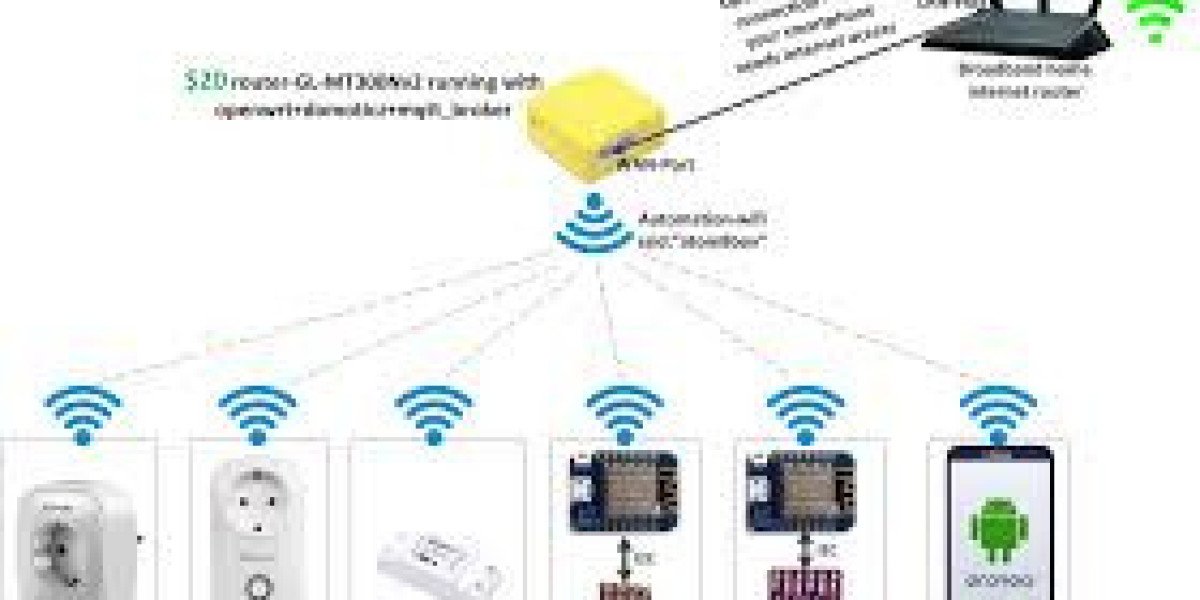Introduction: When Everything Talks, the IoT Modem Listens
In a world where refrigerators can order groceries and cars can talk to traffic lights, the IoT modem is the silent hero making it all possible. It’s not just a device—it’s the gateway that allows billions of smart devices to send, receive, and understand data across the digital universe. Without iot modem, the Internet of Things would be nothing more than a brilliant idea waiting to connect.
What Is an IoT Modem?
An IoT modem is a communication device that connects Internet of Things (IoT) devices to the internet or private networks. Think of it as a translator—it takes signals from sensors, meters, and machines and converts them into data that can travel over networks like LTE, 5G, NB-IoT, or LoRaWAN.
Unlike traditional modems, IoT modems are built for scale, efficiency, and low power use. Whether it’s a smart meter in a remote area or a fleet of delivery trucks on the move, an IoT modem ensures seamless data flow without interruption.
How IoT Modems Work
An IoT modem functions as the communication bridge between devices and cloud platforms. Here’s a simple breakdown:
Data Collection: IoT sensors collect data (like temperature, speed, or location).
Signal Conversion: The IoT modem converts that data into a transferable signal.
Network Transmission: The data travels via cellular, satellite, or wireless networks.
Cloud Integration: Once in the cloud, analytics platforms process and visualize the data.
This invisible chain of communication is what drives real-time insights, automation, and predictive maintenance in industries worldwide.
Why IoT Modems Are Crucial for Modern Connectivity
Global Reach: IoT modems connect devices in remote locations where Wi-Fi or wired connections fail.
Scalability: They support millions of connections simultaneously across large infrastructures.
Reliability: Designed for 24/7 uptime and extreme environments—from oil rigs to agricultural fields.
Security: Built-in encryption and SIM authentication protect data integrity.
Without IoT modems, industries like logistics, healthcare, smart cities, and energy would struggle to communicate efficiently.
Types of IoT Modems
1. Cellular IoT Modems
Use 3G, 4G LTE, or 5G to cellular modem transmit data. Perfect for mobile or wide-area applications like vehicle tracking.
2. LPWAN Modems (Low Power Wide Area Network)
Operates on networks like NB-IoT or LoRaWAN. Ideal for sensors that send small data packets infrequently, such as smart meters.
3. Satellite IoT Modems
Used where terrestrial networks don’t reach—think remote mines, ships, or desert monitoring stations.
IoT Modem Applications: Where They Make an Impact
Smart Agriculture: Monitors soil, weather, and crop conditions remotely.
Smart Cities: Powers connected lighting, traffic systems, and environmental sensors.
Healthcare: Enables patient monitoring and connected medical devices.
Industrial Automation: Provides real-time insights into equipment performance.
Fleet Management: Tracks vehicles and optimizes routes with live data.
Every sector that relies on data transmission benefits from a robust IoT modem.
The Future of IoT Modems: 5G and Beyond
The next generation of IoT modems will harness the ultra-fast, low-latency capabilities of 5G, allowing near-instant data exchange. Imagine autonomous cars communicating in milliseconds or industrial robots working in perfect sync—that’s the potential IoT modems unlock.
Emerging technologies like AI-driven network management and edge computing will further enhance their intelligence, allowing modems to make decisions locally before sending data to the cloud.
Conclusion: The Unsung Hero of the Connected Age
The IoT modem might not grab headlines like AI or robotics, but it’s the backbone of modern connectivity. It keeps our devices talking, our systems running, and our data flowing. As the world moves toward a more intelligent, automated future, the role of IoT modems will only grow—quietly powering the conversations between billions of devices that shape our digital world.
Read More Latest Articles: Clicking Here







